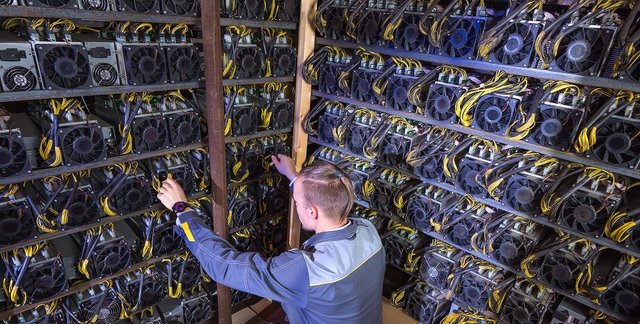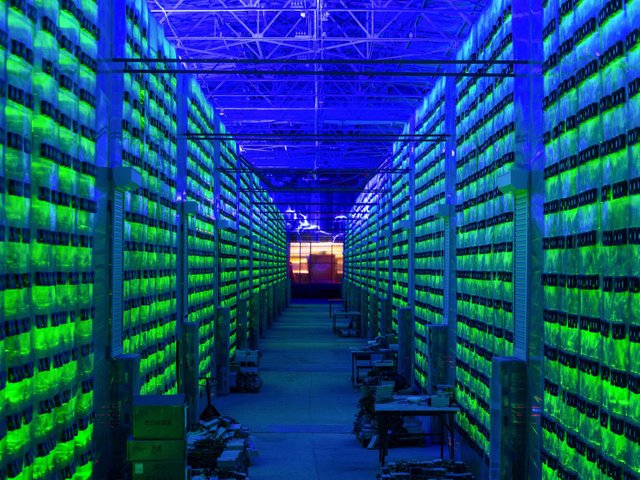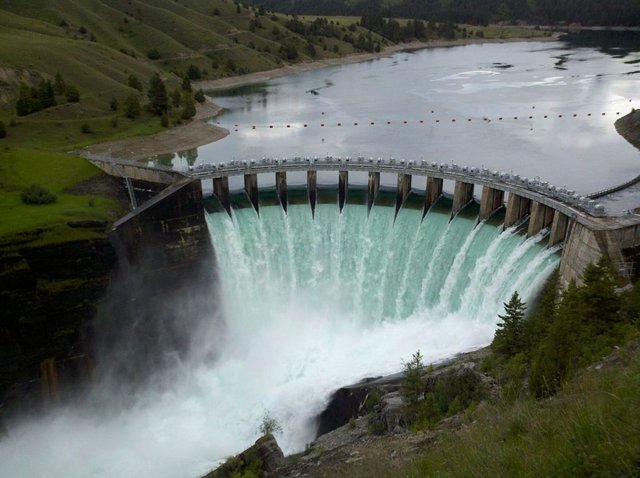
Bitcoin mining, which, in the middle of last year, generated more than 50% of its computing power (or hashrate) in China, begins to move away from the traumatic circumstances that occur in Asia and takes a new direction. The industry seems to have a promising future in Latin America, where the network is being mined with geothermal energy from the volcanoes of El Salvador or there is great potential to be exploited in other countries such as Paraguay, Argentina or Costa Rica.
Circumstances are driving out Bitcoin miners who have remained on the Asian continent. After China began to resolutely combat and punish digital mining , as well as all activities related to cryptocurrencies, the mining centers were forced to close and leave the territory .
Many took refuge in Kazakhstan because of its proximity to China and its cheap energy, but recently the difficulties have also been concentrated in this country, affecting the production of miners. In less than a year they have had to face power and Internet outages , as well as popular riots and Russian troops roaming the entire region.
In short, Asia is a territory that becomes hostile to Bitcoin miners, also taking into account that Iran recently made the decision to ban Bitcoin mining because, according to the authorities, mining activity has caused power outages.

By banning mining until March 6, Iranian authorities say they will free up 209 megawatts of power they require for domestic consumption during the coldest months of the year.
Such movements are being repeated in almost all of Asia, which is gradually becoming an unfriendly continent with cryptocurrencies. The State Bank of Pakistan, for example, has submitted a document to the High Court calling Bitcoin and other cryptocurrencies "illegal" and useless for commercial purposes, local media have reported .
The truth is that as the restriction against cryptocurrencies and Bitcoin mining grows, more and more miners are now seeking greater geopolitical, economic and energy stability for large-scale mining farms . In this case, Latin America stands out on the world map with more and more initiatives and regulatory proposals to encourage mining in their countries.

Paraguay flickers on the world map of Bitcoin mining
It is estimated that this year the bill that the legislators of the Guarani nation are discussing will be approved and that in April it will be presented to the Chamber of Deputies. The regulations seek to establish a clear framework for Bitcoin and other cryptocurrencies, but with special emphasis on digital mining .
"The bill proposes that Bitcoin mining be recognized as an industrial activity and upon approval, miners will be protected under Paraguay's investment law," added Ribeiro.

He adds that currently digital mining in the country has several barriers that limit its growth and expansion. One of them is that, although the Itaipú (Paraguay-Brazil) and Yacyretá (Paraguay-Argentina) hydroelectric dams have a large surplus of the 8,500 MW they generate, it is also true that all that capacity is not yet available for feed large mining farms .
"It is one thing to have a large electrical capacity and quite another to be able to use it," says Ribeiro, detailing that Paraguay's electricity consumption law establishes a maximum of 6 MW for any industrial activity. It is one of the main reasons why, until now, there are no large farms in the country, but rather small-scale miners, he explained.
Connoisseurs of the Bitcoin mining industry in Paraguay, such as Fernando Arriola, Vice President of BCMining, and Juanjo Benitez Rickmann, CEO of Digital Assets, also agree that the digital mining sector will take a big boost in the country when the bill is passed , which they hope will happen this year.
"Many companies are arriving that are interested in bringing their machines to mine in the country, but there are still many pending aspects regarding the legality of the business and these must be clarified once the regulations come into force," they said.
Costa Rica has energy in abundance

“We have energy in abundance,” said Eduardo Cooper, president of the family business, which owns the Data Center CR farm, where some 650 ASICs mine Bitcoin powered by a hydroelectric plant in Costa Rica.
The Poás River plant had to be rebuilt 30 years later because the government stopped buying electricity during the pandemic. This happened due to the excess supply of energy in the Central American country , where the government has a monopoly on energy distribution. In this sense, mining could give a second life to national businesses whose days were numbered.
Cooper added that international mining companies are looking for cheap, clean energy and a stable internet connection, which Costa Rica offers in abundance . Currently, the country does not have a special law regulating cryptocurrencies. However, last October the president of the Central Bank of Costa Rica, Rodrigo Cubero Brealey, said that this new economy had to be regulated "to the extent necessary."
On the other hand, in El Salvador there is already a "plan to offer facilities to mine Bitcoin with very cheap energy, 100% clean, 100% renewable and with zero emissions, taking advantage of volcanic activity," as Salvadoran President Nayib Bukele pointed out to half of last year.
Argentina also stands out as a Latin country with potential for Bitcoin mining . In fact, the Canadian company Bitfarms Ltd. is moving forward with its plans to build a gigantic Bitcoin mining center in this country , a project it has been working on since October of last year.
THANKS FOR READ AND SEE YOU ON THE NEXT POST.

Upvoted! Thank you for supporting witness @jswit.

Downvoting a post can decrease pending rewards and make it less visible. Common reasons:
Submit
You got a 5.27% upvote from @dkpromoter!
Get Daily Return by delegating to the bot and earn a passive income on your spare SP while helping the Steem Community
500 SP 1000 SP 2000 SP 5000 SP 10000 SP 20000 SP
Downvoting a post can decrease pending rewards and make it less visible. Common reasons:
Submit